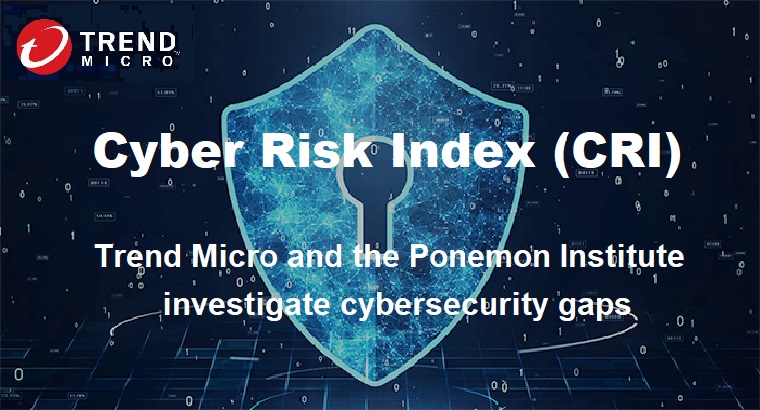Trend Micro published in the latest version of Cyber Risk Index (CRI) calculated by the Ponemon Institute by measuring the gap between organizations’ current security posture and their likelihood of being attacked.
The findings of the latest CRI revealed 23% of global organizations suffered seven or more attacks infiltrating their networks or systems over the past year. The vast majority (83%) of surveyed organizations expect that such attacks are “somewhat” to “very” likely to be successful in the coming 12 months.
“The CRI is fast becoming an indispensable resource for CISOs looking to assess their readiness to respond to cyber attacks,” said Jon Clay, director of global threat communications for Trend Micro. “This year we’ve added data from Europe and APAC to provide truly global insight. It will help organizations across the world find better ways to cut through complexity, mitigate insider threats and skills shortages, and enhance cloud security to minimize cyber risk and drive post-pandemic success.”
The CRI is based on a numerical scale of -10 to 10, with -10 representing the highest level of risk. The current global index stands at -0.41, representing “elevated” risk, although risk is highest in the US (-1.07) due to a perceived lack of cyber preparedness versus other regions.
Responding organizations claimed their top cyber-threat risks globally are:
- Phishing and social engineering
- Clickjacking
- Ransomware
- Fileless attacks
- Botnets
- Man-in-the-middle attacks
Across the globe, organizations’ key concerns are:
- The loss of customer data
- Access to IP and financial information
- Customer churn
- Stolen or damaged equipment
“Trend Micro’s CRI is a useful tool for companies to better understand their cyber risk,” said Dr. Larry Ponemon, CEO for Ponemon Institute. “Expanding this to be a global resource in 2020 opens the door for more organizations to leverage this useful information. Businesses of all sizes and industries across the globe can use the CRI to improve their protection strategy and better prepare their cybersecurity posture in the year to come.”
There were differences between certain countries as well. In the US respondents were unique in listing the cost of outside consultants as a top negative consequence of attack, while in APAC damage to critical infrastructure concerned organizations.
The top global security risks within IT infrastructure were highlighted as:
- Organizational misalignment and complexity
- Negligent insiders
- Cloud computing infrastructure and providers
- Shortage of qualified personnel
- Malicious insiders











